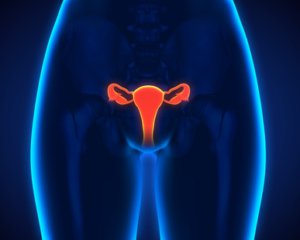afterLoad (456.48KB) (549μs)
afterInitialise (1.28MB) (21.22ms)
afterRoute (856.95KB) (8.83ms)
beforeRenderComponent com_content (35.24KB) (295μs)
Before Access::preloadComponents (all components) (69.88KB) (2.68ms)
After Access::preloadComponents (all components) (98.07KB) (1.99ms)
Before Access::preloadPermissions (com_content) (1.6KB) (16μs)
After Access::preloadPermissions (com_content) (3.29MB) (10.22ms)
Before Access::getAssetRules (id:62 name:com_content.category.20) (130.65KB) (105μs)
After Access::getAssetRules (id:62 name:com_content.category.20) (7.38KB) (56μs)
Before Access::getAssetRules (id:8 name:com_content) (51.77KB) (29.82ms)
After Access::getAssetRules (id:8 name:com_content) (6.17KB) (34μs)
afterRenderComponent com_content (1.38MB) (134ms)
afterDispatch (32.63KB) (5.45ms)
beforeRenderRawModule mod_articles_category (READ MORE...) (350.71KB) (10.55ms)
afterRenderRawModule mod_articles_category (READ MORE...) (84.63KB) (86.13ms)
beforeRenderRawModule mod_tags_popular (Search) (4.81KB) (30μs)
afterRenderRawModule mod_tags_popular (Search) (6.65KB) (44.18ms)
beforeRenderRawModule mod_custom (BOOST YOUR IMMUNE DEFENSE) (960B) (34μs)
afterRenderRawModule mod_custom (BOOST YOUR IMMUNE DEFENSE) (4.2KB) (254μs)
beforeRenderRawModule mod_custom (Are you taking supplements) (736B) (13μs)
afterRenderRawModule mod_custom (Are you taking supplements) (1.03KB) (26μs)
beforeRenderRawModule mod_articles_category (Get additionel and more detailed knowledge about) (8.41KB) (23μs)
afterRenderRawModule mod_articles_category (Get additionel and more detailed knowledge about) (44.39KB) (6.63ms)
beforeRenderRawModule mod_custom (Antiaging) (6.97KB) (34μs)
afterRenderRawModule mod_custom (Antiaging) (1KB) (46μs)
beforeRenderRawModule mod_custom (Exercise) (720B) (12μs)
afterRenderRawModule mod_custom (Exercise) (1.02KB) (22μs)
beforeRenderRawModule mod_custom (Check this before you buy a Q10 product) (752B) (9μs)
afterRenderRawModule mod_custom (Check this before you buy a Q10 product) (944B) (19μs)
beforeRenderModule mod_articles_category (READ MORE...) (267.89KB) (4.51ms)
afterRenderModule mod_articles_category (READ MORE...) (1.25KB) (80μs)
beforeRenderModule mod_tags_popular (Search) (5.17KB) (16μs)
afterRenderModule mod_tags_popular (Search) (2.52KB) (26μs)
beforeRenderModule mod_custom (BOOST YOUR IMMUNE DEFENSE) (1.31KB) (12μs)
afterRenderModule mod_custom (BOOST YOUR IMMUNE DEFENSE) (1.28KB) (22μs)
beforeRenderModule mod_custom (Are you taking supplements) (352B) (10μs)
afterRenderModule mod_custom (Are you taking supplements) (1.28KB) (20μs)
beforeRenderModule mod_articles_category (Get additionel and more detailed knowledge about) (8.03KB) (17μs)
afterRenderModule mod_articles_category (Get additionel and more detailed knowledge about) (1.31KB) (1.11ms)
beforeRenderModule mod_custom (Antiaging) (7.33KB) (15μs)
afterRenderModule mod_custom (Antiaging) (1.27KB) (28μs)
beforeRenderModule mod_custom (Exercise) (336B) (9μs)
afterRenderModule mod_custom (Exercise) (1.25KB) (21μs)
beforeRenderModule mod_custom (Check this before you buy a Q10 product) (352B) (10μs)
afterRenderModule mod_custom (Check this before you buy a Q10 product) (1.28KB) (20μs)
beforeRenderRawModule mod_menu (Main menu-US) (28.53KB) (581μs)
afterRenderRawModule mod_menu (Main menu-US) (157.05KB) (3.66ms)
beforeRenderModule mod_menu (Main menu-US) (720B) (6μs)
afterRenderModule mod_menu (Main menu-US) (4.36KB) (68μs)
beforeRenderRawModule mod_languages (Sprogskift) (3.44KB) (20μs)
afterRenderRawModule mod_languages (Sprogskift) (29.88KB) (2.89ms)
beforeRenderModule mod_languages (Sprogskift) (720B) (8μs)
afterRenderModule mod_languages (Sprogskift) (5.31KB) (25μs)
beforeRenderRawModule mod_finder () (6.34KB) (15μs)
afterRenderRawModule mod_finder () (154.54KB) (7.12ms)
beforeRenderModule mod_finder () (704B) (6μs)
afterRenderModule mod_finder () (3.29KB) (46μs)
beforeRenderRawModule mod_custom () (6.62KB) (1.08ms)
afterRenderRawModule mod_custom () (90.52KB) (2.05ms)
beforeRenderModule mod_custom () (704B) (9μs)
afterRenderModule mod_custom () (1.23KB) (71μs)
beforeRenderRawModule mod_menu (Main menu-US) (5.07KB) (158μs)
afterRenderRawModule mod_menu (Main menu-US) (5.8KB) (1.53ms)
beforeRenderModule mod_menu (Main menu-US) (720B) (6μs)
afterRenderModule mod_menu (Main menu-US) (3.75KB) (62μs)
beforeRenderRawModule mod_languages (Sprogskift Mobil) (912B) (22μs)
afterRenderRawModule mod_languages (Sprogskift Mobil) (3.89KB) (1.86ms)
beforeRenderModule mod_languages (Sprogskift Mobil) (720B) (6μs)
afterRenderModule mod_languages (Sprogskift Mobil) (1.27KB) (40μs)
beforeRenderRawModule mod_finder () (2.3KB) (14μs)
afterRenderRawModule mod_finder () (6.29KB) (1.19ms)
beforeRenderModule mod_finder () (704B) (7μs)
afterRenderModule mod_finder () (1.23KB) (59μs)
beforeRenderRawModule mod_custom () (8.66KB) (238μs)
afterRenderRawModule mod_custom () (904B) (182μs)
beforeRenderModule mod_custom () (704B) (3μs)
afterRenderModule mod_custom () (2.43KB) (28μs)
beforeRenderRawModule mod_custom () (688B) (87μs)
afterRenderRawModule mod_custom () (896B) (110μs)
beforeRenderModule mod_custom () (704B) (3μs)
afterRenderModule mod_custom () (2.71KB) (22μs)
afterRender (180.7KB) (8.75ms)
| 1 x afterRenderComponent com_content (1.38MB) (33.35%) | 134.04ms |
| 1 x afterRenderRawModule mod_articles_category (READ MORE...) (84.63KB) (21.43%) | 86.13ms |
| 1 x afterRenderRawModule mod_tags_popular (Search) (6.65KB) (10.99%) | 44.18ms |
| 1 x Before Access::getAssetRules (id:8 name:com_content) (51.77KB) (7.42%) | 29.82ms |
| 1 x afterInitialise (1.28MB) (5.28%) | 21.22ms |
| 1 x beforeRenderRawModule mod_articles_category (READ MORE...) (350.71KB) (2.62%) | 10.55ms |
| 1 x After Access::preloadPermissions (com_content) (3.29MB) (2.54%) | 10.22ms |
| 1 x afterRoute (856.95KB) (2.2%) | 8.83ms |
| 1 x afterRender (180.7KB) (2.18%) | 8.75ms |
| 1 x afterRenderRawModule mod_finder () (154.54KB) (1.77%) | 7.12ms |
| 1 x afterRenderRawModule mod_articles_category (Get additionel and more detailed knowledge about) (44.39KB) (1.65%) | 6.63ms |
| 1 x afterDispatch (32.63KB) (1.36%) | 5.45ms |
| 1 x beforeRenderModule mod_articles_category (READ MORE...) (267.89KB) (1.12%) | 4.51ms |
| 1 x afterRenderRawModule mod_menu (Main menu-US) (157.05KB) (0.91%) | 3.66ms |
| 1 x afterRenderRawModule mod_languages (Sprogskift) (29.88KB) (0.72%) | 2.89ms |
| 1 x Before Access::preloadComponents (all components) (69.88KB) (0.67%) | 2.68ms |
| 1 x afterRenderRawModule mod_custom () (90.52KB) (0.51%) | 2.05ms |
| 1 x After Access::preloadComponents (all components) (98.07KB) (0.5%) | 1.99ms |
| 1 x afterRenderRawModule mod_languages (Sprogskift Mobil) (3.89KB) (0.46%) | 1.86ms |
| 1 x afterRenderRawModule mod_menu (Main menu-US) (5.8KB) (0.38%) | 1.53ms |
| 1 x afterRenderRawModule mod_finder () (6.29KB) (0.3%) | 1.19ms |
| 1 x afterRenderModule mod_articles_category (Get additionel and more detailed knowledge about) (1.31KB) (0.28%) | 1.11ms |
| 1 x beforeRenderRawModule mod_custom () (6.62KB) (0.27%) | 1.08ms |
| 1 x beforeRenderRawModule mod_menu (Main menu-US) (28.53KB) (0.14%) | 581μs |
| 1 x afterLoad (456.48KB) (0.14%) | 549μs |
| 1 x beforeRenderComponent com_content (35.24KB) (0.07%) | 295μs |
| 1 x afterRenderRawModule mod_custom (BOOST YOUR IMMUNE DEFENSE) (4.2KB) (0.06%) | 254μs |
| 1 x beforeRenderRawModule mod_custom () (8.66KB) (0.06%) | 238μs |
| 1 x afterRenderRawModule mod_custom () (904B) (0.05%) | 182μs |
| 1 x beforeRenderRawModule mod_menu (Main menu-US) (5.07KB) (0.04%) | 158μs |
| 1 x afterRenderRawModule mod_custom () (896B) (0.03%) | 110μs |
| 1 x Before Access::getAssetRules (id:62 name:com_content.category.20) (130.65KB) (0.03%) | 105μs |
| 1 x beforeRenderRawModule mod_custom () (688B) (0.02%) | 87μs |
| 1 x afterRenderModule mod_articles_category (READ MORE...) (1.25KB) (0.02%) | 80μs |
| 1 x afterRenderModule mod_custom () (1.23KB) (0.02%) | 71μs |
| 1 x afterRenderModule mod_menu (Main menu-US) (4.36KB) (0.02%) | 68μs |
| 1 x afterRenderModule mod_menu (Main menu-US) (3.75KB) (0.02%) | 62μs |
| 1 x afterRenderModule mod_finder () (1.23KB) (0.01%) | 59μs |
| 1 x After Access::getAssetRules (id:62 name:com_content.category.20) (7.38KB) (0.01%) | 56μs |
| 1 x afterRenderRawModule mod_custom (Antiaging) (1KB) (0.01%) | 46μs |
| 1 x afterRenderModule mod_finder () (3.29KB) (0.01%) | 46μs |
| 1 x afterRenderModule mod_languages (Sprogskift Mobil) (1.27KB) (0.01%) | 40μs |
| 1 x After Access::getAssetRules (id:8 name:com_content) (6.17KB) (0.01%) | 34μs |
| 1 x beforeRenderRawModule mod_custom (BOOST YOUR IMMUNE DEFENSE) (960B) (0.01%) | 34μs |
| 1 x beforeRenderRawModule mod_custom (Antiaging) (6.97KB) (0.01%) | 34μs |
| 1 x beforeRenderRawModule mod_tags_popular (Search) (4.81KB) (0.01%) | 30μs |
| 1 x afterRenderModule mod_custom (Antiaging) (1.27KB) (0.01%) | 28μs |
| 1 x afterRenderModule mod_custom () (2.43KB) (0.01%) | 28μs |
| 1 x afterRenderRawModule mod_custom (Are you taking supplements) (1.03KB) (0.01%) | 26μs |
| 1 x afterRenderModule mod_tags_popular (Search) (2.52KB) (0.01%) | 26μs |
| 1 x afterRenderModule mod_languages (Sprogskift) (5.31KB) (0.01%) | 25μs |
| 1 x beforeRenderRawModule mod_articles_category (Get additionel and more detailed knowledge about) (8.41KB) (0.01%) | 23μs |
| 1 x afterRenderModule mod_custom (BOOST YOUR IMMUNE DEFENSE) (1.28KB) (0.01%) | 22μs |
| 1 x afterRenderRawModule mod_custom (Exercise) (1.02KB) (0.01%) | 22μs |
| 1 x beforeRenderRawModule mod_languages (Sprogskift Mobil) (912B) (0.01%) | 22μs |
| 1 x afterRenderModule mod_custom () (2.71KB) (0.01%) | 22μs |
| 1 x afterRenderModule mod_custom (Exercise) (1.25KB) (0.01%) | 21μs |
| 1 x afterRenderModule mod_custom (Are you taking supplements) (1.28KB) (0%) | 20μs |
| 1 x beforeRenderRawModule mod_languages (Sprogskift) (3.44KB) (0%) | 20μs |
| 1 x afterRenderModule mod_custom (Check this before you buy a Q10 product) (1.28KB) (0%) | 20μs |
| 1 x afterRenderRawModule mod_custom (Check this before you buy a Q10 product) (944B) (0%) | 19μs |
| 1 x beforeRenderModule mod_articles_category (Get additionel and more detailed knowledge about) (8.03KB) (0%) | 17μs |
| 1 x Before Access::preloadPermissions (com_content) (1.6KB) (0%) | 16μs |
| 1 x beforeRenderModule mod_tags_popular (Search) (5.17KB) (0%) | 16μs |
| 1 x beforeRenderModule mod_custom (Antiaging) (7.33KB) (0%) | 15μs |
| 1 x beforeRenderRawModule mod_finder () (6.34KB) (0%) | 15μs |
| 3 x beforeRenderModule mod_custom () (704B) (0%) | 15μs |
| 1 x beforeRenderRawModule mod_finder () (2.3KB) (0%) | 14μs |
| 1 x beforeRenderRawModule mod_custom (Are you taking supplements) (736B) (0%) | 13μs |
| 2 x beforeRenderModule mod_finder () (704B) (0%) | 13μs |
| 1 x beforeRenderRawModule mod_custom (Exercise) (720B) (0%) | 12μs |
| 2 x beforeRenderModule mod_menu (Main menu-US) (720B) (0%) | 12μs |
| 1 x beforeRenderModule mod_custom (BOOST YOUR IMMUNE DEFENSE) (1.31KB) (0%) | 12μs |
| 1 x beforeRenderModule mod_custom (Are you taking supplements) (352B) (0%) | 10μs |
| 1 x beforeRenderModule mod_custom (Check this before you buy a Q10 product) (352B) (0%) | 10μs |
| 1 x beforeRenderRawModule mod_custom (Check this before you buy a Q10 product) (752B) (0%) | 9μs |
| 1 x beforeRenderModule mod_custom (Exercise) (336B) (0%) | 9μs |
| 1 x beforeRenderModule mod_languages (Sprogskift) (720B) (0%) | 8μs |
| 1 x beforeRenderModule mod_languages (Sprogskift Mobil) (720B) (0%) | 6μs |
 It is only natural to expect a nutritional supplement to be absorbed and deliver an effect. However, for this to happen, you must look for products with documentation. Countless multivitamin products and supplements with Q10, selenium, chromium, magnesium, and iron have very poor quality and are not properly absorbed. Our ageing process alone impairs the uptake of vitamins and minerals, and the same is the case if we lack essential fats, have too high calcium levels, or use antacids and other types of medicine – so this also needs to be taken into account.
It is only natural to expect a nutritional supplement to be absorbed and deliver an effect. However, for this to happen, you must look for products with documentation. Countless multivitamin products and supplements with Q10, selenium, chromium, magnesium, and iron have very poor quality and are not properly absorbed. Our ageing process alone impairs the uptake of vitamins and minerals, and the same is the case if we lack essential fats, have too high calcium levels, or use antacids and other types of medicine – so this also needs to be taken into account.







 According to a large American study, a high dietary intake of vitamin D and calcium is associated with a lower risk of early-onset menopause, where the menstrual periods cease before a woman reaches 45 years of age. Premature menopause affects around 10 percent of women, and the condition increases the risk of impaired fertility, osteoporosis, cardiovascular disease, and earlier cognitive impairment. The prevention of these diseases is also a matter of getting enough sunshine, magnesium, and omega-3.
According to a large American study, a high dietary intake of vitamin D and calcium is associated with a lower risk of early-onset menopause, where the menstrual periods cease before a woman reaches 45 years of age. Premature menopause affects around 10 percent of women, and the condition increases the risk of impaired fertility, osteoporosis, cardiovascular disease, and earlier cognitive impairment. The prevention of these diseases is also a matter of getting enough sunshine, magnesium, and omega-3. It is widely established that women of childbearing age have high levels of estrogen that protect them against cardiovascular disease. However, if they have type 1 diabetes, having high estrogen levels actually increases their risk of these diseases. A group of scientists is therefore planning to investigate whether nutritional supplements with antioxidants can protect diabetics against cardiovascular disease and the premature death caused by these ailments.
It is widely established that women of childbearing age have high levels of estrogen that protect them against cardiovascular disease. However, if they have type 1 diabetes, having high estrogen levels actually increases their risk of these diseases. A group of scientists is therefore planning to investigate whether nutritional supplements with antioxidants can protect diabetics against cardiovascular disease and the premature death caused by these ailments. The majority of chronic ailments, including autoimmune diseases like rheumatoid arthritis, depression, Alzheimer’s disease, diabetes, and cancer, involve inflammation. Science has known for a long time that omega-3 fatty acids counteract inflammation. A study from the University of Illinois, USA, shows that the process is controlled by cannabinoids, which the body itself can produce but are also found in cannabis oil. In other words, it is possible to activate the body’s cannabinoid receptors in the immune system and nervous system by means of large quantities of fish oil, which contains the most active forms of omega-3.
The majority of chronic ailments, including autoimmune diseases like rheumatoid arthritis, depression, Alzheimer’s disease, diabetes, and cancer, involve inflammation. Science has known for a long time that omega-3 fatty acids counteract inflammation. A study from the University of Illinois, USA, shows that the process is controlled by cannabinoids, which the body itself can produce but are also found in cannabis oil. In other words, it is possible to activate the body’s cannabinoid receptors in the immune system and nervous system by means of large quantities of fish oil, which contains the most active forms of omega-3. Children and youngsters who are exposed to lots of sunlight and have plenty of vitamin D in their blood are much less likely to develop sclerosis later in life, according to a new study. In fact, there is a reason why sclerosis is more prevalent at northern latitudes. During the winter, the sun sits too low in the sky for us humans to be able to synthesize vitamin D in the skin. However, one must also realize that the intensified use of sunscreen can block the skin’s production of vitamin D. It is therefore essential to get plenty of vitamin D from sun exposure or to take a vitamin D supplement, as this may help prevent diseases such as sclerosis that take years to develop.
Children and youngsters who are exposed to lots of sunlight and have plenty of vitamin D in their blood are much less likely to develop sclerosis later in life, according to a new study. In fact, there is a reason why sclerosis is more prevalent at northern latitudes. During the winter, the sun sits too low in the sky for us humans to be able to synthesize vitamin D in the skin. However, one must also realize that the intensified use of sunscreen can block the skin’s production of vitamin D. It is therefore essential to get plenty of vitamin D from sun exposure or to take a vitamin D supplement, as this may help prevent diseases such as sclerosis that take years to develop. People who suffer from dry eyes have reduced tear production. The condition has become increasingly common because of all the hours we spend staring at screens from devices like smartphones, computers, tablets etc. Dry eyes are irritated, and the problem may cause damage to both your eyes and eyesight. However, a team of scientists from the Hokkaido University in Japan has demonstrated that healthy fats such as omega-3 are able to protect the eyes and repair damage. You can also find other useful tips on natural ways to prevent and treat dry eyes.
People who suffer from dry eyes have reduced tear production. The condition has become increasingly common because of all the hours we spend staring at screens from devices like smartphones, computers, tablets etc. Dry eyes are irritated, and the problem may cause damage to both your eyes and eyesight. However, a team of scientists from the Hokkaido University in Japan has demonstrated that healthy fats such as omega-3 are able to protect the eyes and repair damage. You can also find other useful tips on natural ways to prevent and treat dry eyes. Eat plenty of oily fish from clean oceans or take a fish oil supplement to make sure that you get enough of the essential omega-3 fatty acids. It lowers your risk of premature death by protecting you against atherosclerosis and a number of other diseases. In fact, blood levels of omega-3 tell a lot more than levels of cholesterol, according to a new study that is published in Journal of Clinical Lipidology.
Eat plenty of oily fish from clean oceans or take a fish oil supplement to make sure that you get enough of the essential omega-3 fatty acids. It lowers your risk of premature death by protecting you against atherosclerosis and a number of other diseases. In fact, blood levels of omega-3 tell a lot more than levels of cholesterol, according to a new study that is published in Journal of Clinical Lipidology. Having high blood levels of vitamin D lowers the risk of several cancer forms, according to a new study of Japanese adults. The study is the first to take a closer look at how vitamin D affects an Asian population. Over the past decades, numerous studies have pointed to vitamin D’s role in cancer prevention. Meanwhile, other studies have demonstrated that there is widespread vitamin D deficiency. There is even evidence suggesting that our need for the nutrient exceeds the official recommendations, at least if we want to protect ourselves against cancer.
Having high blood levels of vitamin D lowers the risk of several cancer forms, according to a new study of Japanese adults. The study is the first to take a closer look at how vitamin D affects an Asian population. Over the past decades, numerous studies have pointed to vitamin D’s role in cancer prevention. Meanwhile, other studies have demonstrated that there is widespread vitamin D deficiency. There is even evidence suggesting that our need for the nutrient exceeds the official recommendations, at least if we want to protect ourselves against cancer. It is a known fact that too much sun gives you wrinkles and increases your risk of skin cancer. However, fearmongering and new lifestyle habits have resulted in widespread vitamin D deficiency, especially because of getting too little sun exposure and using too much suncream. This could have grave consequences. Several studies show that people who stay out of the sun have an increased risk of neurological disorders, sclerosis, and premature death from heart disease and cancer. Make sure to expose yourself to sufficient amounts of sunlight during the summer period, so your skin can synthesize enough vitamin D – but be responsible. If this is a challenge, vitamin D supplements are a good alternative.
It is a known fact that too much sun gives you wrinkles and increases your risk of skin cancer. However, fearmongering and new lifestyle habits have resulted in widespread vitamin D deficiency, especially because of getting too little sun exposure and using too much suncream. This could have grave consequences. Several studies show that people who stay out of the sun have an increased risk of neurological disorders, sclerosis, and premature death from heart disease and cancer. Make sure to expose yourself to sufficient amounts of sunlight during the summer period, so your skin can synthesize enough vitamin D – but be responsible. If this is a challenge, vitamin D supplements are a good alternative.